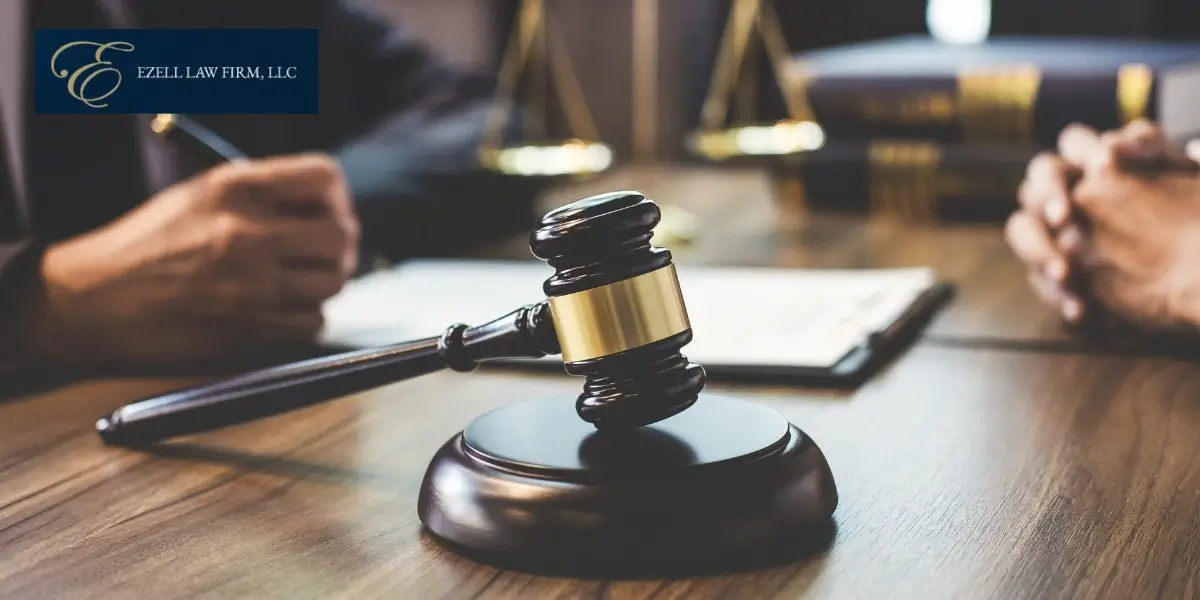Gonzales Regulatory Proceedings Lawyer
Gonzales Regulatory Proceedings Attorney
Regulatory enforcement can pop up with little notice, and it’s important to take these issues seriously. A Gonzales regulatory proceedings lawyer can help you understand what you need to do to comply with the strict procedures such actions entail. Representation during a proceeding can help your business succeed.
Delivering During High-Pressure Situations
At Ezell Law Firm, LLC, we treat each case with care. We have more than a decade of experience and have successfully taken on major agencies across many industries. Our experience in business law since 2010 has prepared us to work through challenging regulatory cases.
What Is a Regulatory Proceeding?
A regulatory proceeding is an action taken against a business, generally after a business or the public files a request. Sometimes, the Louisiana Public Service Commission (LPSC) initiates the proceeding if it thinks something is concerning.
The LPSC reviews all filings, checking whether the issue affects the public interest. If it does, the commission assigns it a docket number, making it official. The types of claims vary. Some are procedural, like failing to file reports on time. Others are more serious.
The commission can open proceedings on its own to review practices. This is common with electric utilities. Publicly owned utilities (POUs) face a lot of scrutiny for this. People tend to place a lot of concern on their rate structures. Customers of POUs in 2023 paid about 13% less than other customers.
Legal Peace Of Mind Is Just A Click Away
Call For A Consultation 225-763-2272
How a Proceeding Works
There’s a set path for regulatory proceedings. It ultimately leads to a final decision. The most important steps include:
- Initial filing. A business submits a formal request. The commission’s secretary reviews it. If the filing meets all requirements, the case gets a docket number. The secretary gives notice to all parties.
- Response period. Other parties can file a protest. This must happen within a set time. It’s usually within three or four weeks of the notice. If no protest is filed, the case may be classified as uncontested. Contested cases move to a hearing schedule.
- Pre-hearing procedures. The commission may hold a pre-hearing conference. This step helps define the issues early on. It can also narrow the scope by resolving small issues right away.
- Formal hearing. Each party presents their own evidence. They can also present witnesses. An administrative law judge controls the hearing. Normally, the hearing is open to the public.
- Decision. After the hearing, the commission issues a written decision. If any party disagrees, they can request a rehearing. If granted, the commission reviews the matter again. The commission then issues a final ruling.
There are many detailed rules that are important during a regulatory proceeding, which is why a lawyer can be helpful in these cases.
Common Outcomes
The LPSC can issue several types of rulings. Some require utilities to change their rates. Others can include fines to correct unsafe practices. The commission can even suspend a company’s authority to operate.
For electric utilities, the results often deal with the way rates are set. POUs serve large customer groups. These face extra inspection during reviews. Their lower rates can raise concerns from competitors.
The commission can order a company to appear in enforcement cases. If the company representatives don’t appear, the commission may find them in contempt. These outcomes are public records and can affect future renewals.
Why Do I Need an Attorney?
Legal counsel can help with each stage, including the initial filing as well as a final order. They can draft pleadings for their clients. Responding to discovery is important as well.
They know the tight deadlines the court imposes on certain actions. Lawyers also understand how to challenge unfavorable rulings.
Lawyers also work with witnesses. They can prepare witnesses for their clients. They can also cross-examine witnesses from the other parties involved.
If a ruling seems flawed, an attorney can prepare a motion for rehearing. They keep track of past rulings that may affect the case.
For larger entities like POUs, legal teams can explain proposed changes. They can defend the decisions with financial data. Many companies rely on this guidance to limit their risk.
All entities going through a regulatory proceeding have legal rights. A skilled attorney can help stand up for the company so that these rights are used correctly.
FAQs
What Are the Different Types of Proceedings in Louisiana?
The different types of proceedings in Louisiana are usually contested or uncontested. Contested proceedings involve a formal objection from a party. These lead to scheduled hearings. Uncontested proceedings happen when no protest is received after a notice is sent. An uncontested case is usually resolved faster. Public hearings are held when issues affect a wide group of people.
What Is the Louisiana Administrative Procedure Act?
The Louisiana Administrative Procedure Act (APA) sets the legal ground rules for how state agencies can regulate. It applies to many different regulatory proceedings, including utilities that are under LPSC authority. The act outlines procedures for hearings. It helps keep decisions fair. LPSC’s own rules might have additional procedures on top in addition to the APA.
What Types of Businesses Are Involved in Regulatory Proceedings?
The businesses that are involved in regulatory proceedings vary widely. Things like telecommunication companies and other utilities are normally included. POUs are often involved. In the United States, there are 1,958 POUs. These entities may face proceedings related to their rates or services. Private businesses can still be involved if they have contracts with these utilities.
Can Businesses Challenge the Outcome of a Gonzales Regulatory Ruling?
Businesses can challenge the outcome of a Gonzales regulatory hearing. They have the right to request a rehearing. A motion has to be filed within 10 days of the order. The commission may grant or deny the request. If the issue is still not resolved, the party can go to court. Legal counsel helps make sure these requests are filed the right way.
Fight for Your Business
In the United States, publicly owned utilities serve over 24 million customers. Legal proceedings involving POUs take time. They usually require a legal team to face regulators. If you’re facing an investigation in Gonzales, schedule a consultation with Ezell Law Firm, LLC.





